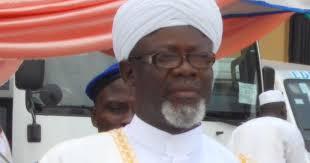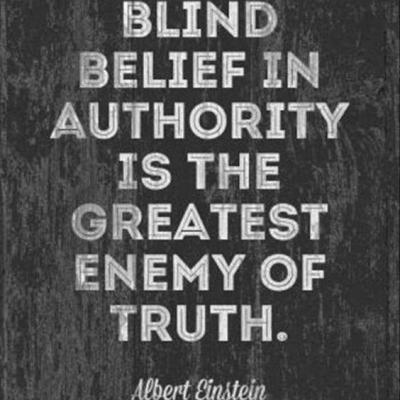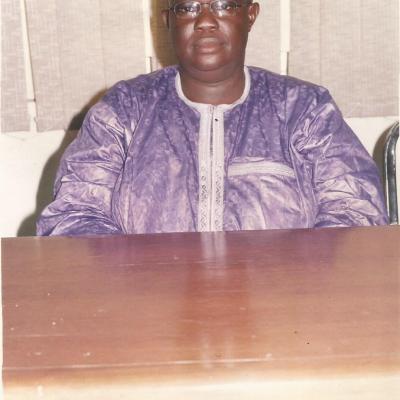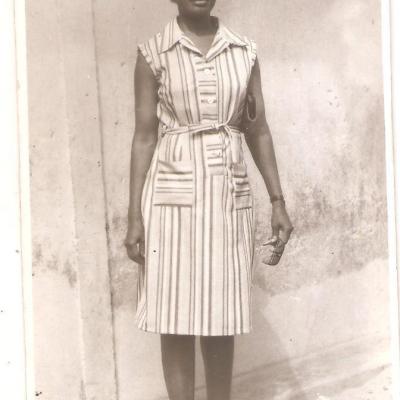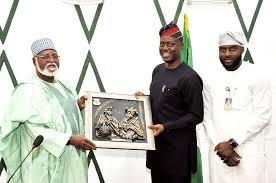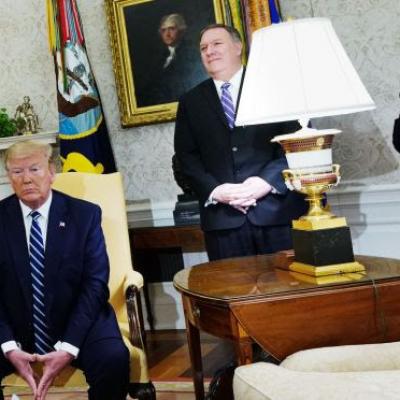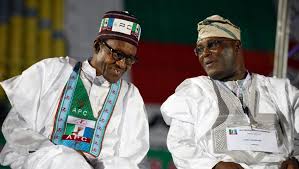
Justice : Any Hope for Nigerians When Court Judgments are for the Highest Bidders ?-Prof. Olagoke
- By solomon2day
- On 18/11/2019
- In News
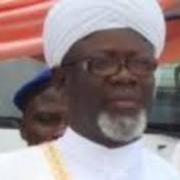 Millions of Nigerians are daily lamenting their inability to obtain justice in the courts of law. They blame this ugly trend, majorly, on corruption and other self centered considerations such as status in society and influence.
Millions of Nigerians are daily lamenting their inability to obtain justice in the courts of law. They blame this ugly trend, majorly, on corruption and other self centered considerations such as status in society and influence.
Indeed, the Judiciary has, in most recent times, proved not to be the last resort for the common man, if recent events in Nigeria are anything to go by.
Confronted with the fact that Government at all levels disobey court orders, Nigerians are now helpless, disillusioned and distraught.
In this interview, the Founder, Spiritual Head and Grand Imam of Shafaudfeen-in-Islam Worldwide, Prof. Sabitu Olagoke says that as long as court judgments are based on nepotism and the highest bidder syndrome in law courts in Nigeria it would be difficult for ordinary Nigerians to obtain justice. Excerpts :
Nigerians are increasingly finding it difficult to get justice in the law courts in this dispensation, what do you think is wrong ?
Regarding the issue of justice, the law court is the last hope of the people. This is because their perception , the training and orientation of Judges emphasizes incorruptibility. In other words, objectivity must be their watchword, in dispensation and delivery of judgments.
No one must influence their actions with bribe or make moves to corrupt them and in the same vein the Judges must not demand for gratification or any form of inducement or favor.
The profession is such that they must shun all biases and they must remove elements of unnecessary passion, that may be based on interpersonal relationship, blood relationship and even the status of the people on trial. This is why in a democratic dispensation the structure of democracy is such that governance must be articulated through the factors of transparency, accountability, auditing and probity, as well as the essence of feedback mechanism, even in procurement, due process is expected to be employed.
Governance is embedded in the constitution of the nation which we expect the political active players to read, digest and comprehend for ease of application in the governance process.
It takes two to tango, the people who are been governed, who gave the mandate to those people who are governing them and the performance rating of those charged with the responsibility of governance.
Democracy, therefore stands on the two axis of justice and equity. In all these, the legislators are to formulate policies to regulate the environment for governance through feeling the pulse of the nation, while the executive are expected to harness and manage the resources-human and material.
The legislators are equally expected to perform oversight functions to ensure that the executive fulfill promises and do the needful without derailing from the laid down ethical principles. All these are based on the issue of social justice.
The policy formulators are so powerful by the rule of the law, to ensure that the electoral processes including campaigns equally follow due process. They further have the power to call to order, the Commissioners or Ministers on issues concerning project execution.
When all these things are done accordingly, the issue of justice and equity would have been addressed to the point of producing peace for the environment as well as sustainable development without rancor.
The level of constitutional compliance in going about the executive duties of managing approved budget by the National Assembly, as well as the welfare of the people become a matter of social interest, whereby the economic viability, environment feasibility and social justice based on the agitation level of the people, which must be critically controlled to avoid violence, insurgence and war, as indications of the collapse in the security system.
Based on the above analysis, the expected job of the Judiciary manifests clearly on the need to regulate and control the justice system emanating from the activities of government officials and the people generally. The question now is how far have we fared in the management of our justice system by the third realm of government, the Judiciary ?
Our situation in Nigeria is appalling, if we consider the relationship between the Judiciary, the security agencies and the Executive as having frictions, perhaps, because of the environment of partisan politics that polarizes issue and trivializes ethics.
This becomes a serious issue when one considers the following events of historical records : the killers of Dele Giwa are yet to be identified, fished out and brought to justice, the killers of a one time Attorney General of the Federation, the late Chief Bola Ige are yet to be identified, fished out and brought to justice.
The Nigeria state found it difficult to ensure the transparent trial of Chief James Ibori, despite all the evidences available, but Nigerians celebrated him on his return from an overseas jail after been convicted on the same matter.
Nobody pursued the extra judicial murder of Mohammed Yusuf in Police custody, but today the whole Nigeria is paying dearly for this, through the unabating vengeance of destruction by the Bok-Haram.
When is Nigeria to have universally acclaimed judgments on court litigation on various election results ?
What about the very many of such cases that have to do with the poor masses suffering in silence ?
Where lies the hope of the people and the nation generally when it comes to the issue of seeking redress ?
It was Nobel Laureate, Prof. Wole Soyinka who said in one of his books,’’ The man died in that person who keeps mute in the face of tyranny’’, but when one cry out and judgment goes to the highest bidder, how are we to be motivated to have our trust in the Judiciary ?
Employment in Nigeria is now about nepotism and judgement in the eyes of very many would only be received fairly by those who have right connections.
Our clamor for restructuring must therefore, extend to ensure sanctity of the Judiciary through the possible overhaul of the system to ensure corrupt elements are eased out for sanity to reign supreme.
Equally important, is the issue of freedom of the Judiciary. Generally, those who pay the piper dictate the tune. If the appointment of the leadership of the Judiciary remains with the political class, there is no way their operations would not be polarized through political interventions, interference and sentiments, thereby murdering merit to promote mediocrity in an environment of nepotism.
Another aspect is that of salary independence which is not expected to come from the political class, but be managed by government as rolled out by them with that favor of independence to manage the disbursement without going cap in hand to the political masters, whose activities the Judiciary is expected to scrutinize, regulate and control.
This working formula would afford them the opportunity to meet up with the challenge of incorruptibility for them to be objectively fair to all irrespective of status, poor or rich and religion, even when it is different from that of the Judge’s personal faith interest.
The independence of the Judiciary would give them the freedom to use SWOT analysis in maximally utilizing their areas of strength and opportunities to avoid the delay in judgment dispensation. They would equally be able to identify areas of weaknesses and threats in catering for the areas of inadequacies of courts and Judges as well as the capacity building needs for Judicial officials to be capable of practicing through ethics, their assigned national assignments, to promote peaceful co-existence, good governance, zero tolerance for corruption and institutional indiscipline, which are germane to building a virile and prosperous society for strong institutions, rather than strong individuals.
Nigeria Prof. Sabitu Olagoke President Muhammadu Buhari Governance


